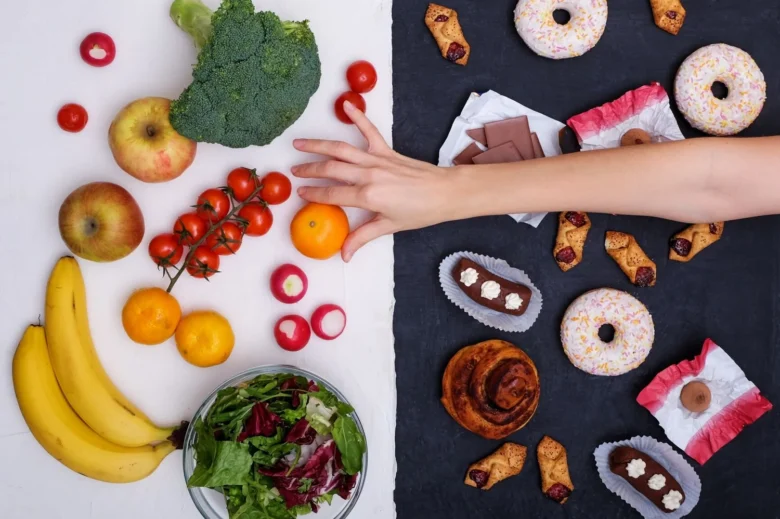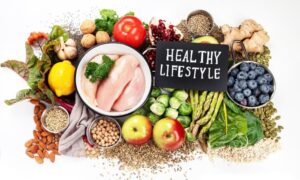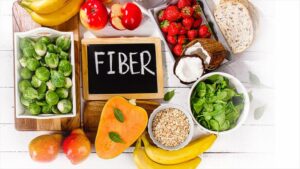In our busy lives, we often choose the easiest way to eat. Sweets, drinks, and convenience foods can be tempting, but in the long run, they can be detrimental to your health. The good news is that you don’t have to give up the things you love to live a healthy lifestyle. The key is to make smart dietary changes—simple changes that allow you to enjoy delicious meals while also giving your body the nutrients it needs. Over time, these small changes can add up and lead to more energy, better weight management, and overall better health.
Why Smart Diet Changes Are Important
Many people think they have to completely overhaul their diet to eat healthy, but often, small changes can make the biggest difference. Choosing whole-wheat bread instead of white bread, soda instead of soda, or pastries instead of fried foods can significantly reduce your intake of sugar, harmful fats, and empty calories. These changes meet your needs while simultaneously lowering your risk of chronic conditions like obesity, type 2 diabetes, and heart disease.
To make your diet effective, you need to find foods that are both healthy and delicious. This way, you won’t feel deprived, which will help you maintain the habit long-term.
Replace sugary drinks with hydrating options.
The best place to find hidden sugars is in sugary drinks like soda, energy drinks, and even ready-made juices. A can of soda can contain up to 40 grams of sugar, which exceeds the recommended daily amount.
Good alternatives:
- For a delicious, unsweetened beverage, try sparkling water with lemon or berries.
- Choose unsweetened hot tea or herbal tea to drink with it.
- If you enjoy juice, drink it neat in small amounts or make your own juice at home with fresh fruits and vegetables.
- This change will help you stay hydrated, reduce unnecessary calories, and prevent blood sugar spikes.
Avoid white grains and choose whole grains
Many of the fiber and nutrients in white bread, rice, and pasta are depleted. Instead, they’re packed with sugary carbohydrates that quickly spike your blood sugar. Over time, these carbohydrates make you want to eat more and ultimately contribute to weight gain.
Better alternatives:
- Replace white rice with brown rice, quinoa, or wild rice.
- Choose whole-wheat pasta instead of refined pasta.
- For sandwiches, choose whole-wheat bread and wraps.
The fiber in whole grains helps your body digest food better, keeps your heart healthy, and keeps you feeling fuller longer.
Instead of frying, you can also bake or grill
Many fried foods are high in calories and fat, which can be harmful to your health. Even if they taste good at the time, they can increase your risk of heart disease and high cholesterol.
Better alternatives:
- Don’t fry chicken; bake or grill it.
- Instead of frying fries, try oven-baked sweet potato fries.
- If you crave fried food but don’t want to use too much oil, try an air fryer.
- These changes will allow you to enjoy a crispy texture without compromising your health.
Choose low-fat protein sources
Protein is important for building muscle, providing energy, and maintaining good health, but not all protein sources are created equal. Fatty red meat, processed meats like sausage, and fried egg whites can all contribute to weight gain and increase salt levels in the body.
Healthier food substitutions:
- Replace red or processed meat with skinless chicken, turkey, or fish.
- Beans, lentils, and tofu are all good sources of plant-based nutrients.
- Snack on Greek yogurt or hard-boiled eggs instead of store-bought meat.
These changes can provide your body with the protein it needs without an overdose of harmful fats.
Replace unhealthy snacks with healthier options
Cookies, candy, and sweets provide a quick energy boost, but they can also lower your blood sugar and contribute to weight gain over time. Therefore, choose nutritious snacks that will keep your energy levels up all day.
Healthier alternatives:
For a healthier sweet treat, replace a chocolate bar with dark chocolate (70% or more).
- You can replace chips with popcorn or roasted chickpeas.
- Replace baked goods with fresh fruit coated in nut butter.
These foods can meet your body’s needs and contain fiber, vitamins, and minerals.
Milk is high in sugar and salt and low-quality oils
Healthier alternatives:
- You can replace mayonnaise with hummus or mashed avocado.
- Oil and balsamic vinegar can be used instead of creamy dressings.
- High-fat dips should be avoided. You can use salsa or Greek yogurt instead.
- These foods don’t contain hidden calories, and your food will still be delicious.
Frequently Asked Questions about Smart Food Substitutions
Question 1: Do I have to give up my favorite foods if I want to eat healthier?
Not at all. You don’t have to. The goal is to eat a balanced diet with your favorite foods and find healthy alternatives to the foods you eat every day. The key is balance.
Question 2: Are all low-fat foods a better choice?
Not always. Some low-fat foods replace fat with sugar or artificial ingredients. It’s best to read labels and choose whole, unprocessed foods.
Question 3: How can I start making food replacements without feeling overwhelmed?
Start small. Replace one or two foods each week. For example, replace soda with soft drinks and whole wheat bread with white bread. These small changes will become a habit over time.
4. Are plant-based replacements always better for you?
Some plant-based foods are naturally better for you than others, but many are still good choices. For example, some plant-based foods can be highly processed. Always read labels.
Question 5: Can food replacements help you lose weight?
Yes. By reducing your intake of refined carbohydrates, unhealthy fats, and added sugars, food replacements can help you reduce your total calorie intake and increase your feeling of fullness, making it easier to manage your weight.
In short
Smart changes to your diet are a great way to live a healthier lifestyle without giving up the foods you love. You can significantly improve your long-term health, energy, and well-being by making small, consistent changes, like replacing sugary drinks with plain water, whole grains with refined grains, and fried foods with baked or grilled ones.
Remember: getting healthier doesn’t mean being perfect. The key is making choices that suit your body and your goals, and keeping at it. Every change counts, and these small steps add up to big changes.




